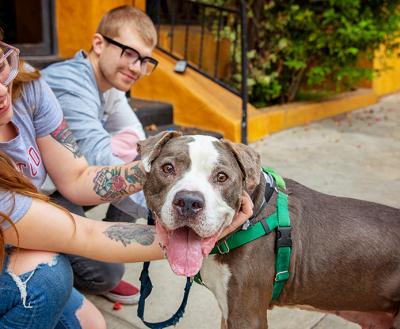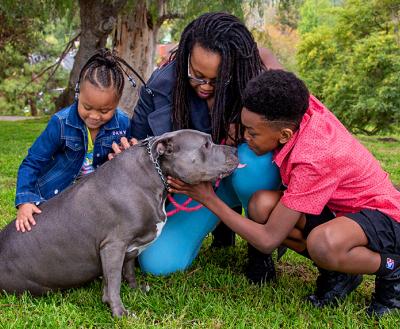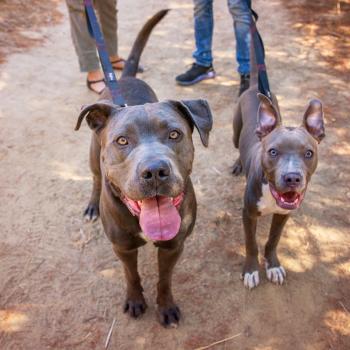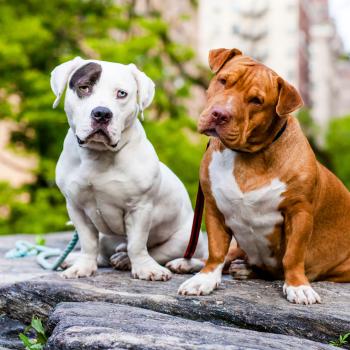
Ending restrictions based on dog breed
Breed-specific legislation (BSL) refers to laws that ban or restrict certain types of dogs based simply on their appearance, usually because they are perceived as dangerous.
These outdated laws, ordinances, and breed restrictions for apartments limit responsible people’s right to love and care for any breed of dog they choose.
Big dogs are at risk
Everyone who follows the safety rules as a responsible dog owner should be allowed to care for whatever breed of dog they choose.
We're helping to change breed-restrictive laws
Best Friends is committed to making America a friendlier place for big dogs by taking action against breed restrictions — and you can help.

Creating safe, humane communities is a priority for all of us. The only way to do that and protect both people and pets is by passing and enforcing laws that emphasize public safety and individual accountability. We call this breed-neutral laws because when it comes to enforcing dangerous-dog laws, the focus should be on negligent and reckless owners, not the breed of the dog.

Ending breed restrictions in communities like yours
Breed-specific restrictions don’t make communities safer, they don’t reduce risk, and they don’t protect people or pets.
That’s why, with your help, Best Friends is dedicated to eliminating breed-restrictive legislation once and for all. We’re working to put policies in place that keep big dogs with their families, protect the rights of people who have big dogs, end breed restrictions by the insurance industry and strengthen tenant rights.
With the help of Best Friends’ advocacy team and animal advocates like you, as of 2019, 22 states have passed provisions against breed restrictions, and we’re working every day to increase that number.
In 2021, Nevada and New York passed laws prohibiting breed restrictions by insurance companies.
You can help by contacting your local and state representatives to advocate for ending restrictive policies that are harming pets and the people who love them.

Help end breed-restrictive insurance policies
More big dogs end up in shelters when people are denied coverage or are dropped by their insurance company because of their dog’s breed, size or appearance.



